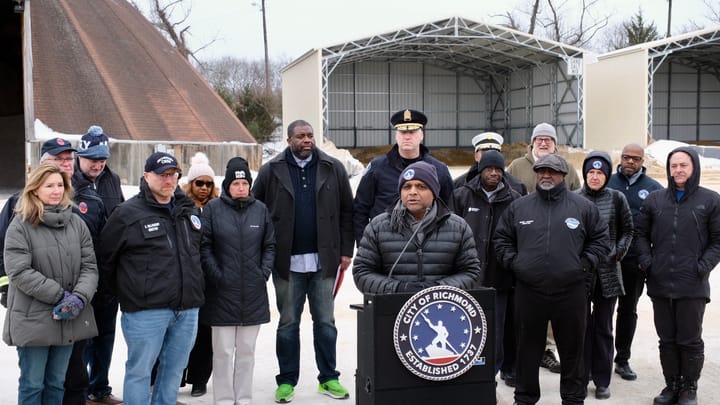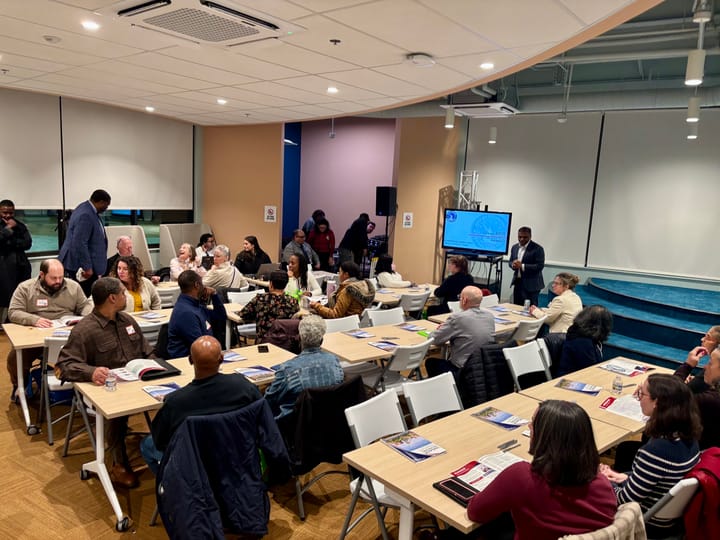State officials suggest Henrico increasing its water intake from Richmond contributed to second boil advisory

In a new memo about Richmond’s water treatment facility, state regulators said that Henrico County increased the amount of water it was pulling from the city system in late May as the city was forced to issue its second boil water advisory in five months.
After reviewing water flow data from late May, the Virginia Department of Health’s Office of Drinking Water found “an increase in flows for Henrico County during the most vulnerable period of time.”
The increase in flow to Henrico occurred, according to the memo, when city officials were under the impression the neighboring county was reducing the flow to help ease strain on the city’s system.
“This misunderstanding might have prevented the need for a [boil water advisory] according to the City of Richmond,” state drinking water officials said in the notice dated Monday.
The state notice appears to cut against Henrico’s public statements about its actions during the water trouble in May, but county officials said Monday they were still reviewing their own data.
The latest problem — the third incident in six months to cause the state to accuse the city of violating drinking water regulations — was caused by filters at the Richmond plant becoming clogged due to high sediment in the James, the city’s failure to clean the filters and potential issues with the city’s chemical feeds.
In several press releases on May 27, Henrico officials said they had reduced their water flow from the city system and temporarily disconnected from it in order to help the city conserve pressure.
“We are proud to have been able to support our neighbors during this stressful time,” Henrico Department of Public Utilities Bentley Chan said in one of those releases last month.
On Monday evening, Henrico County Manager John Vithoulkas said county utility officials were "collecting data on our draws from the city during the days in question."
"In general, we were and continue to be in regular communication with Richmond Public Utilities and are able to adjust our draws, as requested, to help the city maintain sufficient flows to its customers," Vithoulkas said in a statement. "There are several other deficiencies with the city's system that are noted in the report. I have spoken with Mayor Avula this evening, and we're in agreement that the report underscores the need for a regional solution to upgrade the city's antiquated water system. As always, Henrico remains committed to providing assistance to the city 24 hours a day, seven days a week."
The state’s 12-page memo devotes a single paragraph to the flow of water into Henrico, and doesn’t include detailed data showing exactly how the flow changed as city and county officials responded to the water problem caused by the clogged filters.
Though the state officials said the city’s own faulty maintenance procedures and unusually poor-quality water from the James River caused the May 27 boil water advisory that affected many city neighborhoods, the notice adds a new wrinkle pointing to an apparent lack of regional coordination.
Henrico officials and others have repeatedly faulted the city for its failure to quickly communicate the extent of the Jan. 6 water crisis that left the city and Henrico under a boil water advisory for the first time.
The state’s review of the second water incident points to a more multifaceted communication issue, spotlighting how Henrico’s actions as Richmond’s biggest water purchaser can also impact the city when problems occur and supplies of treated water become more scarce.
The water flow issue could be another sticking point for officials to work through as Richmond and its surrounding counties begin to hold joint talks about how to strengthen the regional water system and potentially move toward more jointly managed infrastructure.
In a statement, Richmond officials did not directly address the state’s findings on water flow to Henrico, saying only that city employees “notified all regional partners” and “requested all partners to reduce flows.”
On the morning of May 27, city officials initially said they had quickly resolved the problem and there would be no impact on drinking water safety. A few hours later, the city reversed its earlier guidance, announcing most neighborhoods north of the James River would have to boil their water before using. By the end of the day, that advisory had been expanded to cover some areas south of the river.
The Richmonder filed a Freedom of Information Act request with the city for key officials’ communication records to try to gain a better understanding of what was happening behind the scenes on May 27.
In response, the city said it would charge for time spent compiling those documents and gave The Richmonder a cost estimate of $1,000.
Virginia law allows governments to charge for FOIA requests, but officials can choose to release records for free. Though city officials have identified the water problems as a top priority for the city, they have chosen not to waive FOIA fees for water-related records requests.
The state memo is attached to another notice of alleged violation directed to the city, in which state officials bluntly say the second boil water advisory could have been avoided through better facility management by the city.
Though multiple water treatment facilities were pulling water from the James upriver from Richmond’s facility, state officials noted, it was only the city’s plant that encountered a serious problem.
Richmond’s rapid accumulation of regulatory violations, the state said, “represent unprecedented and very concerning situations for a waterworks this size and service area.”
“These events erode public trust in the city’s ability to comply with applicable regulations that protect public health,” the state notice said.
Contact Reporter Graham Moomaw at gmoomaw@richmonder.org






